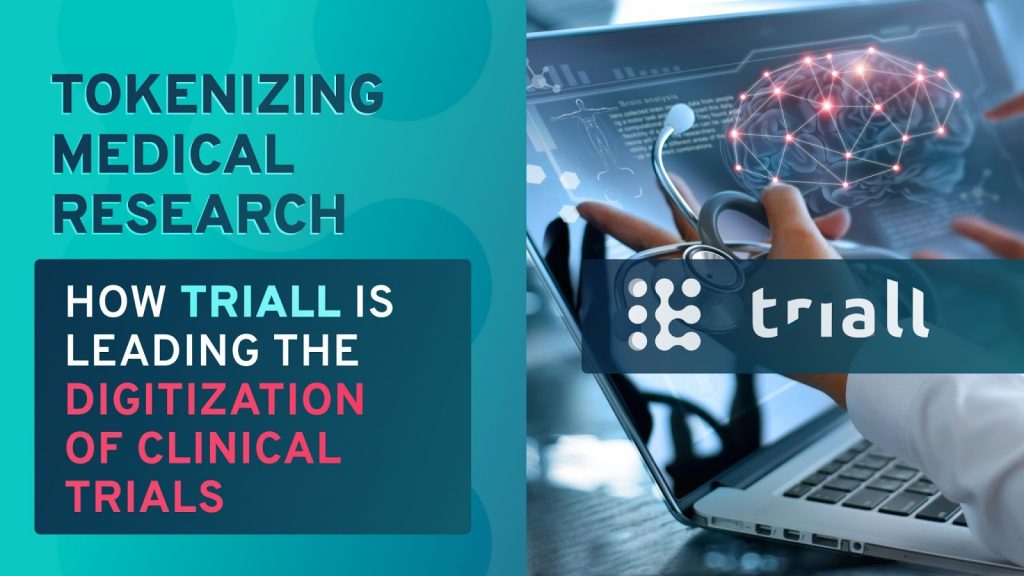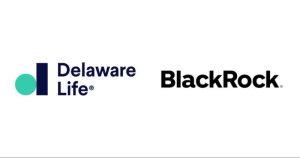Tokenizing Medical Research —Triall Digitizes Clinical Trials

The COVID-19 pandemic has significantly disrupted the systems and processes of various industries across the globe.
Naturally, the healthcare industry has been one of the most disrupted industries, with healthcare systems around the world being overwhelmed by the fast-spreading virus.
However, this impact has also triggered the rapid development of healthcare infrastructure, technologies, and processes to develop treatments and vaccines as governments demanded a rapid response.
Specifically, the clinical trial industry, which typically evaluates the safety and efficacy of new treatments and vaccines for a period of eight to ten years. Several highly effective COVID-19 vaccines have been produced in mere months, marking a turn to a new age of rapid pharmaceutical research and development.
Triall is taking this embrace of new technologies in the sector to the next level.
Capitalizing on the rapid digitalization of the clinical trial industry and the rising popularity of blockchain technology, Triall is developing a digital ecosystem for all stakeholders involved in clinical trials.
Its aim is to reduce several persistent inefficiencies felt by the industry, such as data fragmentation, oversight issues, and data integrity problems by bridging the gap between the healthcare and blockchain space.
Blockchain-Secured Immutable Audit Trails
The clinical trial industry naturally adheres to high-quality standards for producing evidence about the safety and efficacy of new vaccines and therapeutics.
Data produced during clinical trial activities and processes must be verifiable and conclusive to allow regulators and health authorities to recommend their use. Blockchain and related technologies offer effective tools for ensuring clinical trial evidence is reliable, traceable, and verifiable.
Triall applies these technologies in the clinical trial industry and thereby provides a solution to the growing number of data integrity and traceability problems experienced in this sector.
To illustrate, Triall’s electronic Triall Master File system (‘Verial eTMF’) supports clinical research professionals in their document management while enabling auditors and regulators to reconstruct trial activities and evaluate key decisions made.
Uniquely, it also allows the creation of blockchain-secured immutable audit trails of documents and data that provide regulators and auditors with greater confidence about the authenticity and integrity of clinical trial data, ruling out the changes of intended and unintended alterations.
This increases efficiency as regulators can more easily determine whether evidence is conclusive and whether the medicinal product candidate qualifies for introduction into the market.
Decentralized Identity and Access Management
Additionally, blockchain-enabled technologies such as decentralized identifiers (DIDs) and verifiable credentials (VCs) offer amazing opportunities for improving the way clinical trial professionals handle sensitive medical data in clinical trials, as well as more generally.
DIDs are a new type of identifier for decentralized, digital identity management.
They can be assigned to any type of object (document, data point, etc.) or entity (individual, organization, software system, etc.) and can be used to facilitate a privacy architecture secured by the public key descriptions associated with each DID.
This ensures said objects or entities can be easily identified and that data can be securely exchanged using peer-to-peer communication channels. Using this approach, any data-providing stakeholder in a clinical research consortium can selectively choose which data points to share with other stakeholders or entities in Triall’s ecosystem, whilst also determining the means of access.
Triall’s vision is that DIDs and VCs will shape a decentralized identity and access management layer that revolutionizes data discovery and exchange, optimizing privacy, security, and operational efficiency for all stakeholders involved in clinical trials.
Triall’s first application Verial eTMF has already been used in several commercial clinical trial projects after its pilot in 2019, which marked the world’s first implementation of blockchain in a live and running trial.
The company has plans to further extend its value proposition with more software solutions for clinical trial management as well as APIs that enable third-party clinical trial software providers to synergize with their blockchain infrastructure.
By connecting to Triall’s platform, software providers get an easy entry into blockchain functionalities while also being able to communicate with other connected solutions.
Through this unique ‘ecosystem approach’, Triall aims to promote interoperability and tackle the data fragmentation issues that have been plaguing the industry for many years.
Tokenizing Clinical Trials
Underpinning Triall’s ecosystem approach is a two-token system that aims to connect all parties involved in clinical research.
This token system consists of a primary utility token called RL, and its counterpart the Triall Application Credit (T-CRED), which gives the holder the right to enter and use the services in the ecosystem.
T-CRED is the only means of payment for Triall’s services and can only be created by converting TRL.
Clinical research professionals that lock up their T-CRED also receive membership status that provides unique rewards and benefits, while token holders who lock up their TRL can receive community rewards and participate in the governance of the ecosystem.
Through its two-token system, Triall is able to foster a self-sustaining digital ecosystem, in which a multi-stakeholder community of clinical researchers, software developers, and (token) investors is incentivized to create and capture utility and value.
Find out more about Triall’s business opportunities and tokenomics here.
For more info on how Triall is bridging the gap between the healthcare and crypto domains, visit their website here.
Disclaimer
All the information contained on our website is published in good faith and for general information purposes only. Any action the reader takes upon the information found on our website is strictly at their own risk.














